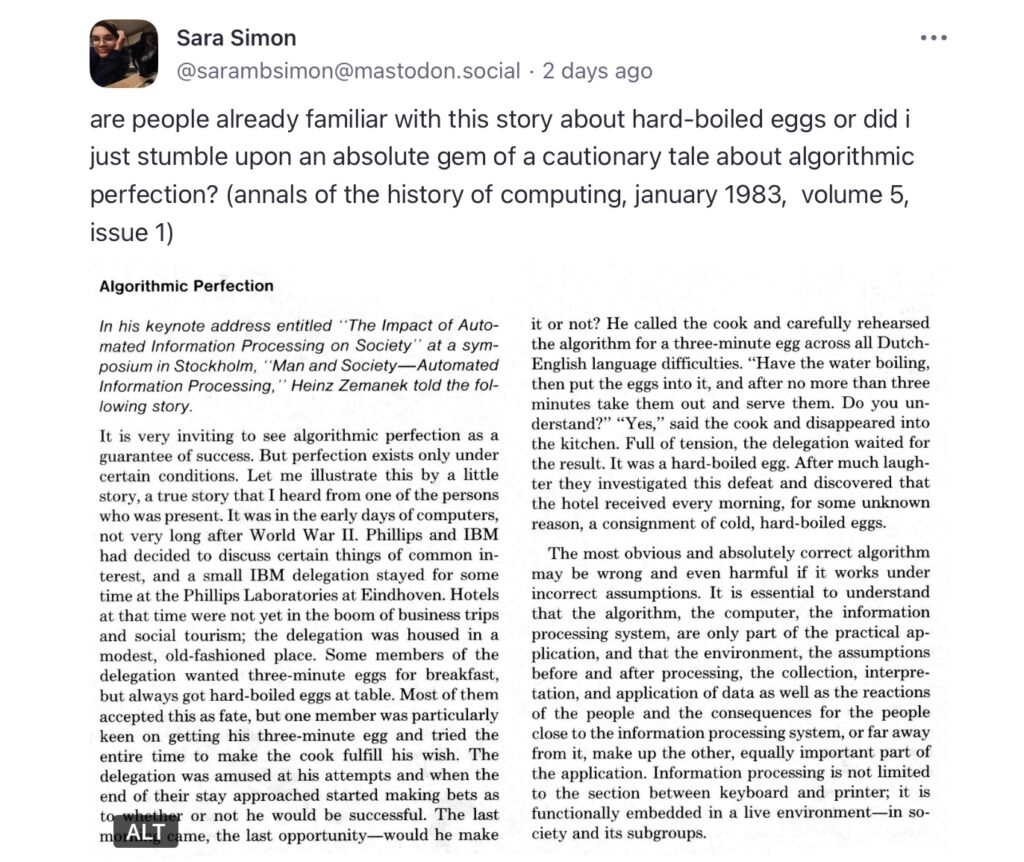The way out..
… of one of the hotels we stay in on our drive through France.
Quote of the Day
”Our posturings, our imagined self-importance, the delusion that we have some privileged position in the universe, are challenged by this point of pale light. Our planet is a lonely speck in the great enveloping cosmic dark.”
- Carl Sagan
Musical alternative to the morning’s radio news
Johann Strauss Jr | Morgenblätter waltz | Op. 279
At first I fell to wondering who the Morgenblätters were, assuming they must have been some rich patrons of the Strauss clan. And then sheepishly realised that the word means ‘the morning papers’. Embarrassing ignorance on my part! On the plus side, though, it makes the choice perfectly appropriate for this slot!
Long Read of the Day
Britain is a developing country
Savagely realistic diagnosis by Sam Bowman.
A slowdown in “frontier growth” and technological progress matters a lot for the United States. But it matters less to Poland or Bangladesh – countries that are still trying to get to the frontier. While technological advances do still benefit them, most of their growth comes from using their existing inputs, like land and labour, in more efficient ways that are not technologically novel, or adding more capital that, again, is not technologically novel – some agrarian developing economies can grow simply by adding more tractors; no developed economy can.
For these developing countries, the challenge is to catch up with the world’s advanced economies, and they can still have rapid improvements in their living standards without the need for global technological progress at all.
My claim is that the UK is now a lot more like Poland than it is like the United States in terms of the kinds of growth it needs to do – driven by improved use of existing technology and inputs, and accumulation of capital, rather than driven primarily by technological advancement. With the exception of a few sectors like AI, we are so far behind the frontier in terms of economic development that worrying about technological progress doesn’t make much sense, and at worst is a serious distraction…
It is. But try telling that to the Bexiteers. Or even to the Prime Minister du jour.
Books, etc.
Heather Cox Richardson has a new book coming
It’s due out in September and she’s now in the throes of recording the audio version, thinking about publicity, etc. On Monday, her Substack blog ( to which I subscribe) had an interesting insight into the importance of pre-orders In the post-Covid publishing business.
One thing new in this go-round is that the pandemic made it hard to get paper (manufacturers switched to cardboard packaging) and to print new runs (large printing facilities in the U.S. have closed as people turned to electronic formats), so if you think you’re going to want an actual book you might want to consider preordering one in the next week or so, from a local bookseller if you can. The publisher uses an algorithm based on preorders to determine the size of the first run, and while a second print run used to take about a week, now it can take as long as 8 weeks, so strong preorder numbers help to avoid running out of copies.
I hadn’t thought of that. And it explains why so many publishers now send me so many pre-publication ‘reading copies’ of books. They’re hoping that it might lead to an Observer review. And occasionally it does, though the person who decides is the paper’s Books Editor, not me.
My commonplace booklet
Tesla Model Y was the world’s best-selling car in Q1 2023
Spoiler alert: this may be of interest only to recovering petrolheads.. Normal, well-adjusted adults should feel free to pass by on the other side.
The news that Tesla’s hatchback outsold the Toyota Corolla last quarter is interesting.
When Tesla embarked on making cars way back in 2004-5 its first product was the roadster — an expensive premium sports car (based on a Lotus Elite chassis) aimed at wealthy early adopters (aka Silicon Valley geeks). From the beginning, though, Elon Musk insisted that the company’s long-term strategic goal was to create affordable mass-market electric vehicles — mainstream cars, including saloons and affordable compacts.
At the time many of us (including yours truly) found that a trifle hubristic. After all, the global automobile industry was huge, dominated by Ford, General Motors, Toyota, VW, Mercedes, BMW, etc. — corporations that had mastered the difficult art of making these complex products on a huge scale. Sure, Tesla had a future making clever, expensive specialised cars — like Jaguar in the old days, maybe. But a mass-manufacturer? — give us a break.
Well, that was then and here we are.
As I was writing that what came to mind were similar thoughts that many people had in the summer of 2007 when Steve Jobs unveiled the iPhone. Sure it was smart and innovative — a handheld computer with an Internet connection that could also make calls. But coming from a computer company that aspired to break into a huge industry dominated by companies like Nokia who knew what they were doing, who did Jobs think he was?
History repeats itself, and doesn’t even rhyme.
Linkblog
Something I noticed, while trying to drink from the Internet firehose.
”In its first few days of life, Threads cashed in on Instagram’s scale — but its troves of initial users aren’t sticking around. Daily users, once at 49 million, dropped in a week to 24 million, according to estimates from the research firm Similarweb.
Meta has said it’s taking steps to improve Threads and give people incentives to come back. But the situation has echoes of another time a tech giant tried to build a social network off of a huge but mismatched set of users — remember Google+
- Ellen Huet on Bloomberg’s Tech Daily.
This Blog is also available as an email three days a week. If you think that might suit you better, why not subscribe? One email on Mondays, Wednesdays and Fridays delivered to your inbox at 6am UK time. It’s free, and you can always unsubscribe if you conclude your inbox is full enough already!


















